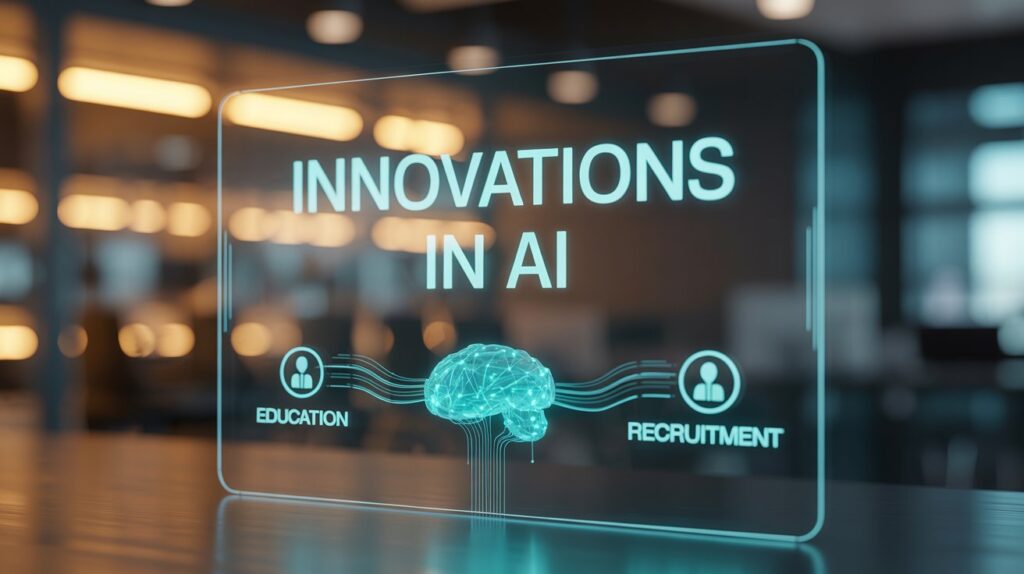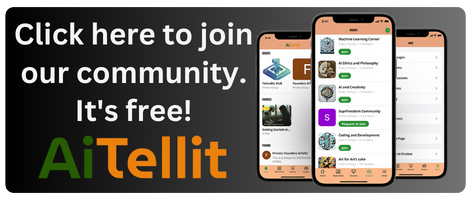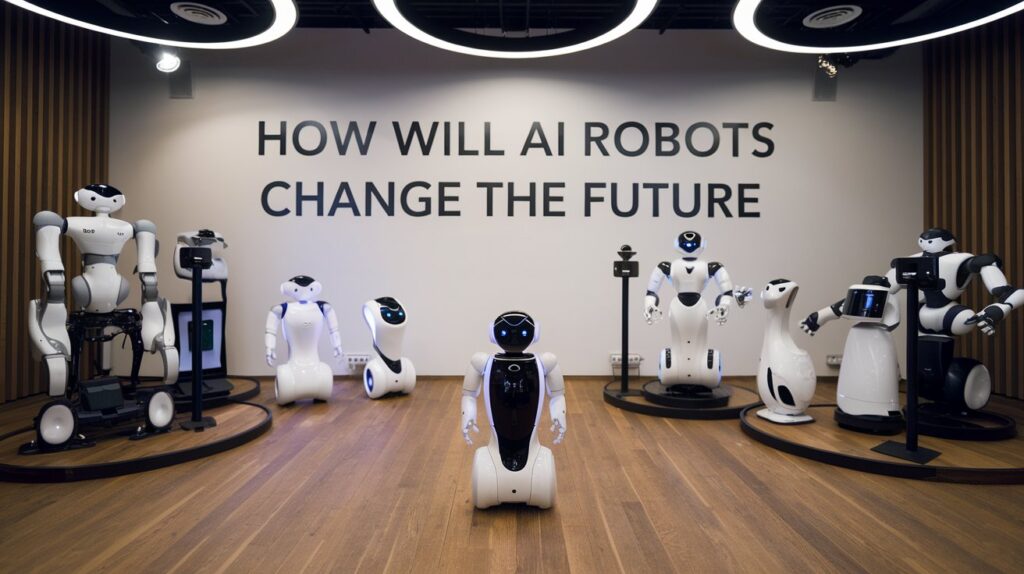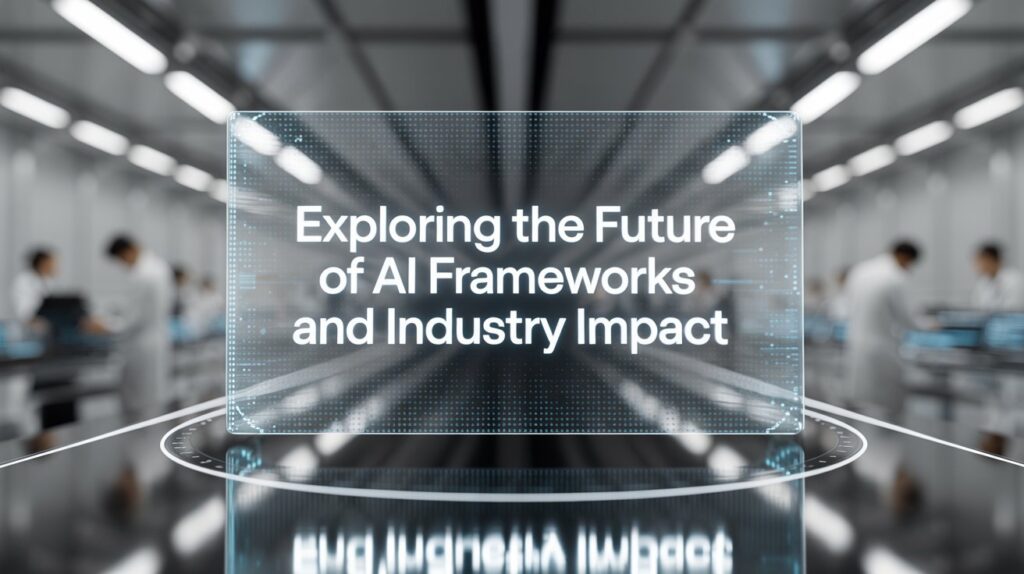Innovations in AI Transforming Recruiting and Education

The convergence of million-token context windows and large language models marks a pivotal shift in recruiting and education markets. Early adopters report 70% reduction in screening time while educational platforms demonstrate 3x engagement through AI-driven personalization. Yet significant barriers remain. Legacy systems resist integration. Revenue models require fundamental restructuring. The organizations that navigate these challenges first will capture disproportionate market share. The question becomes: which strategies separate winners from casualties?
Key Takeaways
- AI enables automated technical screening that evaluates candidates with precision, reducing operational overhead by 90% while ensuring high-quality talent matching
- Large language models conduct nuanced technical interviews beyond basic coding tests, transforming traditional recruiting methods that struggle with scalability
- Hyperpersonalization in education uses AI to create real-time adaptive learning platforms that tailor content to unique cognitive pathways
- Expanded context windows to one million tokens allow AI to process entire codebases and maintain extensive learning histories
- AI-powered platforms like Triple Byte, Meror, and Revision Dojo demonstrate breakthrough applications replacing manual processes with intelligent automation

AI-Powered Technical Screening and Marketplace Evolution
While traditional recruiting methods have long struggled with scalability and accuracy in technical assessments, artificial intelligence now enables unprecedented precision in evaluating engineering talent through automated screening systems.
Companies like Triple Byte and Meror leverage AI assessment tools to create curated marketplaces where engineers undergo immediate evaluations, transforming the candidate experience from weeks-long processes to hours.
These platforms utilize advanced language models to conduct nuanced technical interviews, expanding beyond basic coding tests to evaluate problem-solving approaches and communication skills.
This technological shift addresses historical marketplace failures by reducing operational overhead while maintaining high-quality talent matching at scale.
Million Token Context Windows and New Startup Opportunities
The expansion of context windows to one million tokens in Gemini 2.5 Pro represents a fundamental shift in what AI applications can achieve, opening doors for startups to tackle problems previously constrained by limited memory and processing capabilities.
This million token breakthrough enables processing entire codebases, thorough documentation, and multi-year conversation histories simultaneously. Startups can now build sophisticated recruiting platforms that analyze complete professional portfolios, educational tools that maintain extensive learning histories, and marketplace solutions that perform nuanced candidate-job matching at scale.
The expanded context window transforms theoretical concepts into viable businesses, particularly in domains requiring deep contextual understanding.
Overcoming Historical Skepticism in Recruiting Technology
Despite substantial venture capital investments exceeding billions of dollars in failed recruiting marketplaces throughout the 2010s, modern AI-powered recruiting startups face a unique opportunity to redefine the sector through technological differentiation and proven execution strategies.
Historical failures created deep investor skepticism, yet companies like Instacart demonstrate how technological shifts enable market resilience. Large language models represent recruiting’s mobile moment—a fundamental breakthrough that transforms previously unviable business models.
Triple Byte and Meror exemplify this transformation, leveraging AI for immediate technical evaluations that earlier platforms couldn’t achieve.
Strategic founders must articulate clear differentiation while rebuilding investor confidence through measurable technological advantages.
Hyperpersonalization in Educational Technology

Educational technology companies pursuing hyperpersonalization confront a fundamental challenge: every student’s learning journey unfolds through unique cognitive pathways, yet traditional software architectures demand standardized user experiences.
AI-powered adaptive learning platforms like Revision Dojo demonstrate the transformative potential of personalized assessment systems that dynamically adjust to individual performance patterns.
Large language models enable real-time content generation tailored to specific knowledge gaps, creating unprecedented opportunities for scaling personalized tutoring.
The market signals strong demand—parents readily invest in solutions mimicking human tutoring effectiveness.
Companies integrating sophisticated AI capabilities into educational frameworks position themselves to capture significant value in this evolving landscape.
From Self-Study to AI Tutors: Business Model Transformation
Revolutionary shifts in educational technology business models emerge as AI capabilities transform passive content consumption into dynamic interactive experiences.
Traditional self-study alternatives face disruption as personalized AI tutoring demonstrates superior engagement and retention rates. Companies pivot from selling static course materials to offering subscription-based intelligent tutoring systems.
AI tutoring effectiveness drives higher customer lifetime values, with parents willing to pay premium prices for solutions mimicking human instruction. This transformation enables edtech startups to capture considerably larger revenue per user while reducing content creation costs.
The shift fundamentally restructures unit economics, making previously unviable educational ventures suddenly profitable.
Modern Recruiting Platforms Leveraging Large Language Models
Recruiting platforms harness large language models to transform technical screening from rigid questionnaires into sophisticated conversational evaluations.
AI driven assessments enable nuanced understanding of candidates’ capabilities beyond traditional resume filtering. Companies like Triple Byte and Meror exemplify this shift, creating curated marketplaces powered by recruitment automation.
Key advantages include:
- Million-token context windows enabling thorough candidate analysis
- Real-time evaluation of technical skills through natural dialogue
- Immediate scoring replacing weeks-long manual processes
- Expanded assessment capabilities across diverse skill levels
- Accelerated dataset generation for continuous model improvement
This technological breakthrough addresses historical marketplace challenges, offering scalable solutions where previous attempts failed.
Market Adoption Challenges and Revenue Stream Innovation
Despite technological breakthroughs in AI-powered recruiting platforms, market penetration faces significant headwinds from investor skepticism rooted in historical marketplace failures. Previous ventures consumed substantial capital with limited returns, creating psychological barriers for new entrants seeking market validation.
Contemporary startups must demonstrate sustainable unit economics beyond traditional placement fees through revenue diversification strategies. Successful platforms integrate multiple income streams: subscription-based enterprise tools, candidate assessment services, and data analytics offerings.
Companies like Triple Byte exemplify this approach, combining curated marketplaces with technical screening solutions. Overcoming funding challenges requires proving differentiation through AI capabilities while establishing defensible business models with high gross margins.
Operational Efficiency Through Strategic AI Integration
Transforming operational workflows through strategic AI deployment enables recruiting and education platforms to achieve unprecedented scalability while maintaining service quality.
Strategic integration of AI technologies addresses historical challenges faced by tech-enabled services, particularly regarding gross margins and operational complexity.
Key operational advantages include:
- Automated candidate screening reducing manual evaluation time by 90%
- Personalized learning paths adapting in real-time to student performance
- Predictive analytics optimizing resource allocation across platforms
- Streamlined data labeling accelerating model training cycles
- Integrated feedback loops enhancing AI efficiency continuously
Companies leveraging these capabilities shift from labor-intensive models to software-driven operations, fundamentally reshaping unit economics while delivering superior user experiences.

Frequently Asked Questions
What Privacy Safeguards Protect Candidate Data in AI Recruiting Platforms?
AI recruiting platforms implement robust privacy safeguards including end-to-end data encryption, explicit consent policies, and compliance frameworks. These measures guarantee candidate information remains confidential while enabling data-driven talent acquisition processes that balance innovation with privacy protection.
How Do AI Tutors Handle Students With Learning Disabilities or Special Needs?
AI tutors employ adaptive strategies analyzing individual learning patterns and cognitive differences. These systems utilize personalized learning algorithms to modify content delivery, pacing, and assessment methods, accommodating diverse neurological profiles while tracking progress through data-driven interventions.
What Are the Environmental Impacts of Running Large-Scale AI Recruitment Systems?
Large-scale AI recruitment systems generate substantial carbon footprint through data center operations. Energy consumption from model training and continuous inference poses environmental concerns. Organizations must balance computational efficiency with sustainable practices while scaling AI infrastructure.
Can AI Recruiting Tools Legally Make Hiring Decisions Without Human Oversight?
Legal frameworks increasingly require human oversight in hiring decisions to mitigate algorithmic bias. While AI tools enhance screening efficiency, regulatory compliance mandates human intervention for final determinations, protecting against discrimination and ensuring accountability in employment practices.
How Much Do Ai-Powered Tutoring Services Typically Cost for Individual Users?
AI-powered tutoring costs vary considerably across pricing models, ranging from $20-200 monthly subscriptions to $50-150 hourly rates. Premium personalized services command higher prices, while basic chatbot tutors offer affordable entry points for budget-conscious learners.
Conclusion
AI’s integration into recruiting and education represents a fundamental shift in operational paradigms. Organizations leveraging million-token context windows and adaptive algorithms are achieving 70% reductions in screening time while doubling engagement metrics. The convergence of hyperpersonalization technologies and large language models creates unprecedented market opportunities valued at $15 billion by 2028. Strategic implementation of these innovations will determine competitive advantage as traditional business models become obsolete and AI-driven platforms establish new industry standards.







Responses